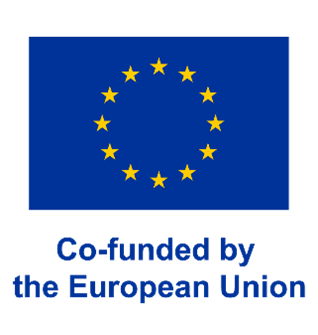Our work
Article
|Published
The objectives of the NORSURV project are infrastructure development, capacity building and piloting, implementation and uptake.
The objective
The NORSURV project has three general objectives:
Infrastructure development:
We aim to improve the surveillance infrastructure in Norway, enabling more timely, useful, effective, flexible, and secure collection, collation, and analysis of data in order to produce surveillance results that can be shared with those who need them in Norway and in the EU to improve prevention and control of infectious diseases. A main improvement will be the integration of data from health registries and other secondary data sources which facilitates the expansion of surveillance objectives to larger parts of the disease pyramid.
Capacity building:
We aim to enhance our surveillance capacity by developing skilled personnel proficient in IT systems, epidemic intelligence, surveillance data analysis, and legal frameworks, through training existing staff and targeted recruitment, complemented by ECDC's Train the Trainers Course and national training sessions. In this way we will ensure sustainable capacity building to support implementation of innovative surveillance functions and infrastructure development.
Piloting, implementation, and uptake according to our priority needs:
We aim to pilot and implement an improved integrated surveillance system, and a modern digital infrastructure for epidemic intelligence, enhancing functionality, interoperability, and compliance with EU regulations. This system will improve outbreak detection, reducing burdens on healthcare workers and ensuring timely, high-quality surveillance results for risk assessment, situational awareness, and informed decision-making for public health interventions.
The concept
The concept of NORSURV is to transform infectious disease surveillance in Norway by enhancing infrastructure, building capacity, and implementing innovative solutions. It focuses on integrating data from health registries and secondary sources to create a unified, real-time surveillance system for better disease prevention and control. Key objectives include modernizing infrastructure for epidemic intelligence, piloting integrated surveillance for prioritized diseases, and replacing outdated paper-based reporting with streamlined digital pathways. Capacity-building initiatives will train staff in IT, data analysis, epidemic intelligence, and legal compliance, ensuring sustainable improvements. Through these efforts, NORSURV seeks to strengthen Norway's ability to detect, respond to, and manage public health threats efficiently and effectively.
Work package 1: Management, coordination, administration, and evaluation
In WP 1 we will ensure efficient management and coordination of the project, adhering to legal and professional standards while optimizing operations and minimizing costs. The project’s funds will be managed in compliance with NIPH’s strict financial policies and the grant agreement. Progress will be closely monitored, with a comprehensive final evaluation to measure impact and identify areas for improvement. All reporting obligations will be met to maintain transparency and accountability.
Lead: Preben Aavitsland, NIPH. Co-lead: Trine Groven, NIPH
Work package 2: Integrated surveillance
In WP2 we will establish the technical infrastructure for near real-time linkage of data from health registries, enabling comprehensive surveillance of infectious diseases and vaccinations. Secondly, integrated surveillance will be piloted and implemented for respiratory infections, healthcare-associated infections, vaccine-preventable diseases, and other prioritized areas. Further, the MSIS Laboratory Database will be enhanced to enable inclusion of all microbiological test results in the surveillance with standardized, automated processes for real-time data analysis. The Norwegian Patient Registry (NPR) infrastructure will be upgraded to allow more frequent, automated updates, ensuring timely data integration for surveillance. An electronic notification pathway will also be developed and replace paper-based reporting of communicable diseases, improving speed, accuracy, and efficiency in clinician reporting. Finally, legal reforms will address barriers to data sharing and permanent storage of identifiable laboratory results, to ensure a legal framework that supports a seamless, unified surveillance system. Together these efforts will strengthen Norway’s ability to monitor, prevent, and control infectious diseases effectively.
Lead: Anne-Marte Bakken Kran, NIPH. Co-lead: Elisabeth Hagen, NIPH
Work package 3: Epidemic intelligence
In WP3 we will develop a digital epidemic intelligence system to streamline the recording, logging, and analysis of event data, enabling efficient follow-up, early warning nationally and internationally, and timely reporting. This system will centralize information and improve the speed and accuracy of early warnings and regular updates. Secondly, an adaptable outbreak investigation database template will be created to support consistent and efficient data collection during outbreaks, accommodating various scenarios and facilitating detailed exposure and outcome analysis and timely reporting. Together, these tools will strengthen NIPH's ability to respond swiftly and effectively to public health threats.
Lead: Umaer Naseer, NIPH. Co-lead: Rossa O’Donnell, NIPH
Work package 4: Capacity building, dissemination, and sustainability
In WP4 we will build capacity among NIPH staff and healthcare professionals to support the development and sustainability of improved surveillance systems. Training will focus on four key areas: IT system development and maintenance, epidemic intelligence competencies, surveillance data analysis using tools like R, and interpreting Norwegian and EU legal frameworks. These enhanced skills will ensure the effective implementation of new infrastructure and innovative surveillance functions. Upgraded competencies will empower staff to conduct comprehensive risk assessments, generate actionable insights, and maintain regulatory compliance. This effort will strengthen Norway’s surveillance capabilities and ensure long-term effectiveness.
Lead: Bjørn Iversen, NIPH
Ethical aspects
Ethical aspects will be discussed regularly during the project lifetime. Surveillance is exempted from the requirement to have approval from an ethical review board. However, if such approval is needed for some of the pilot studies, we will apply for such approval. Data will be managed according to the rules and regulations for the registries in question, and in full compliance with relevant national and EU laws and regulations. All the work will be done in compliance with GDPR legislation.

